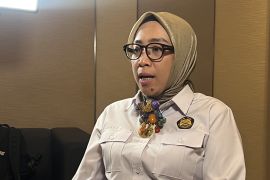"When someone is used to cheating, they will soon lose that sense of guilt or remorse within themselves," he stated in Padang, West Sumatra, on Wednesday.
He believed that when an individual starts cheating, there will be a significant feeling of remorse, but as they keep doing it, the guilt will start wearing off.
Essentially, cheating is an act of taking something that belongs to someone else and is classified as a fraudulent act, all in order to obtain a respectable grade.
This behavior can then grow up until they are fully grown adults who can later become seeds of corrupt acts.
"The habit of cheating is dangerous in children, especially when it actually becomes a habit," he explained.
He pointed out that when a child who is used to cheating grows up and reaches a high position and intends to be a corrupt person, then he will do everything to deceive others using his power.
"There are researches about this, and it should be anticipated as early as possible," he reiterated.
In order to anticipate it, teachers in schools must take measures to plant confidence in each child towards their own academic performances.
"At home, parents also need to introduce the children to the same level of confidence," he noted.
He also urged teachers not to label a misbehaved child as a stupid pupil, so that his self-confidence does not wear off and he starts to cheat during exams.
"There are no stupid students; a lot of children misbehave, but that does not mean that they do not have intelligence in them, it simply takes patience to teach them," he reiterated. (*)
Editor: Heru Purwanto
Copyright © ANTARA 2017









